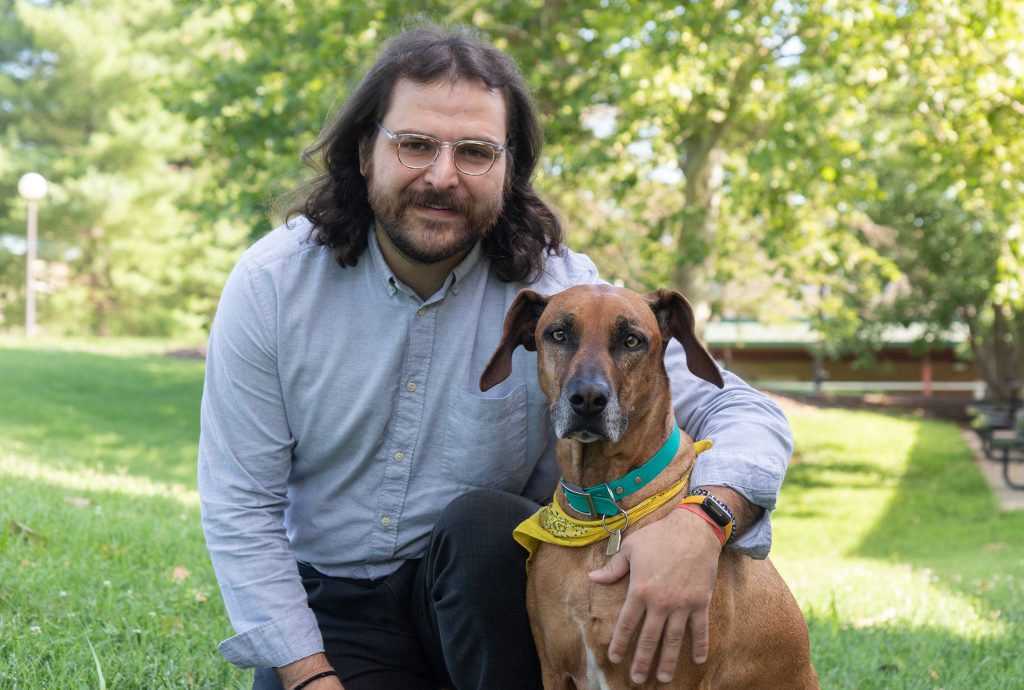Published on
Updated on

Contact: Eric Stann, StannE@missouri.edu
Photos by Karen Clifford
Don Cherry, a former NFL linebacker, knows firsthand the long-term effects of a traumatic brain injury — a condition that impacts millions of people each year through accidents, falls, military service and sports.
After retiring from professional football, Cherry turned his experience into purpose. He opened a dog daycare and began working with service dogs helping veterans deal with post-traumatic stress disorder, a condition which often develops from the psychological trauma associated with brain injuries.
“I saw how these animals gave the veterans a sense of purpose, stability and connection,” he said. “This led me to ask deeper questions about how we can build support systems that also protect the animals’ welfare.”
Charting a new path
Motivated by these experiences, Cherry began looking into graduate programs that aligned with his vision of advancing animal welfare. It was a short list, and the University of Missouri’s College of Veterinary Medicine quickly rose to the top.
Everything started coming together for Cherry after he connected with Carolyn Henry, director of Mizzou’s Research Center for Human-Animal Interaction. The center’s work, which bridges human health and animal well-being, offered the exact interdisciplinary approach he was seeking.
“Dr. Henry recognized the importance of exploring the animals’ side of the therapeutic relationship,” he said. “That perspective — considering their well-being as integral, not incidental — could reshape how we approach human-animal support systems.”
Researching the well-being of service dogs
Cherry, who is now working on a doctoral degree from Mizzou’s Pathobiology Area Graduate Program, is applying his background in canine behavior to a multi-year study focused on the mental and physical health of service dogs as they assist people recovering from brain injuries.
Cherry’s research will follow service dogs from puppyhood through their working years, studying key traits — including temperament, stress tolerance and breed characteristics — that may predict their long-term success in therapeutic roles. To get a comprehensive view of each dog’s well-being, he’s also collecting biological data such as heart rate, blood pressure and stress hormone levels.
“Understanding how these dogs respond both physically and emotionally to the demands of their work gives us a more ethical, evidence-based approach to training and supporting them,” he said.
Redefining human-animal support systems
Cherry hopes his research will help improve training methods and build better support systems for service animals, while also setting a new standard for how their contributions are studied and respected.
Looking ahead, he plans to expand his research to include other animals involved in trauma recovery, such as horses and cats.
“This is about creating a balanced partnership between people and animals,” he said. “Helping people heal while also making sure the animals supporting them are being cared for, too.”